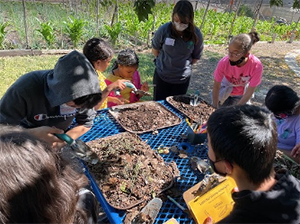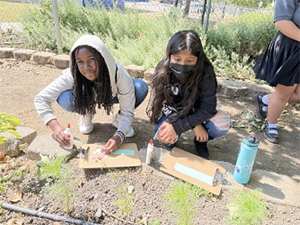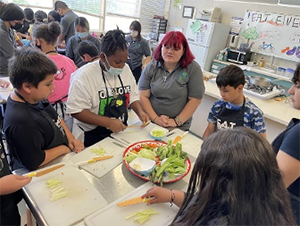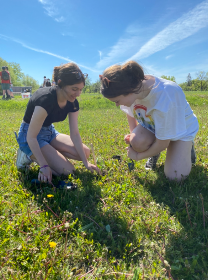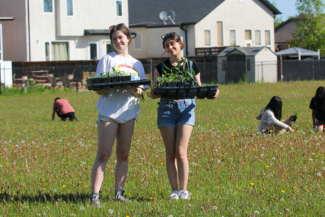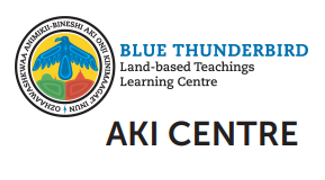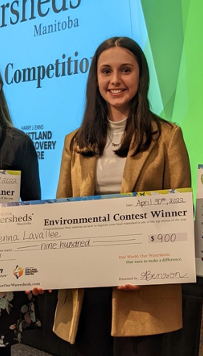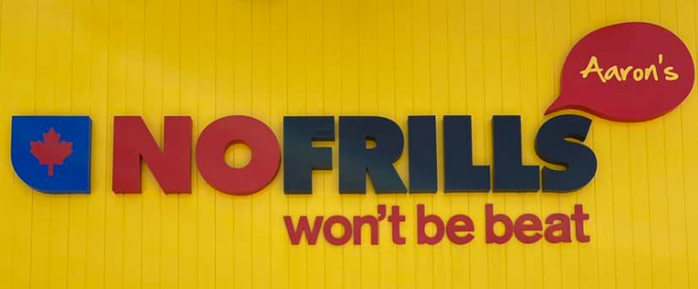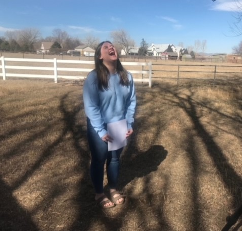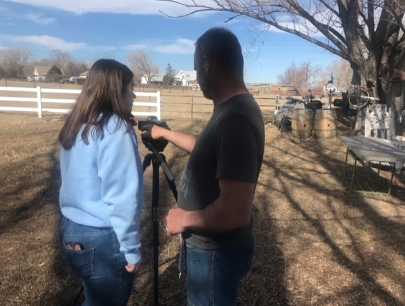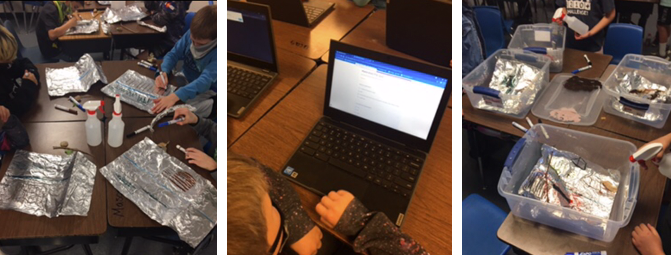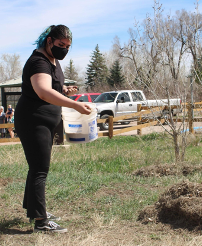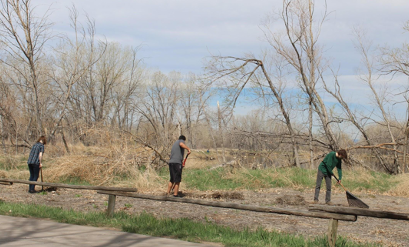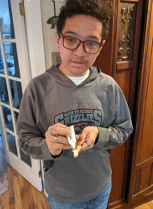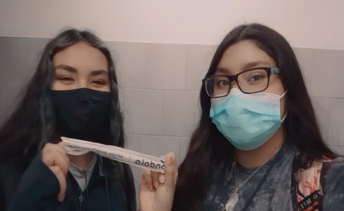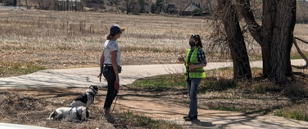2022, SACRAMENTO, CALIFORNIA, USA
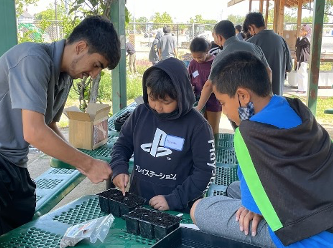
Jessica Espejo Arellano, Kathy Nguyen, Abigail Murillo Maldonado, and Cher´Nae Perry, students from Grant High School’s GEO Academy, invited 5th and 6th graders from Hagginwood Elementary to the Grant garden to learn about seeds, vegetable and pollinator plants, as well as the benefits of composting. The elementary students planted seeds, learned plant anatomy by cooking “5 plant part chow mein”, investigated critters in the compost and soil, and made plant ID bookmarks. The GEO student leaders planned and led the hands-on activities with the rotating groups. Additional students from GEO, Ghulam Murtaza Niazi, Rodrigo Gatto, Alejandro Gil-Reyes, Milton Molina helped make this day a fun, educational and successful event for all.
